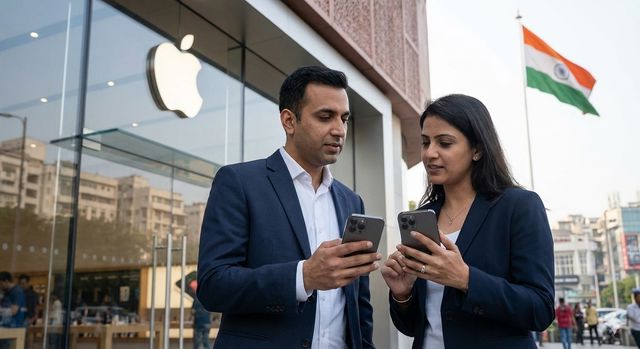The world of artificial intelligence is experiencing a seismic shift, and at the heart of it stands DeepSeek, the Chinese AI startup that has disrupted the industry’s long-standing assumptions about computing power and AI training efficiency. With an AI model that rivals OpenAI’s best offerings while utilizing significantly weaker hardware, DeepSeek has sent shockwaves through the global tech and cybersecurity landscape. The ripples of this advancement have reached the industry’s biggest names—OpenAI’s Sam Altman, NVIDIA, and even former U.S. President Donald Trump—each of whom has weighed in on the new paradigm DeepSeek presents.
But beyond the excitement, this revolution also brings new challenges: from economic impacts on AI chip manufacturers to security risks posed by open-source AI models. Let’s explore what this means for the industry and the implications for cybersecurity professionals worldwide.
NVIDIA’s Market Collapse: The AI Disruption That Shook Silicon Valley
For years, NVIDIA has dominated the AI chip market, supplying the power-hungry GPUs that drive large-scale AI models. However, DeepSeek’s breakthrough in AI model efficiency, known as Test-Time Scaling, has upended this equation, proving that high-performance AI models can run on lower-end chips.
This revelation led to a historic 17% plunge in NVIDIA’s stock price, wiping out $600 billion in market value in a matter of days. While NVIDIA attempted to maintain a neutral stance, the company acknowledged DeepSeek’s technical advancements, stating:
“DeepSeek showcases impressive AI progress and highlights the power of Test-Time Scaling—leveraging existing computational techniques to push AI models beyond current limitations.”
Despite the diplomatic response, industry experts are speculating that this could mark a fundamental shift in AI computing. With DeepSeek’s ability to circumvent U.S. chip restrictions and still compete at the highest levels, NVIDIA and other AI hardware manufacturers may face an existential crisis if more companies adopt similar cost-efficient AI development strategies.
OpenAI’s Response: Sam Altman’s Competitive Spirit
While DeepSeek’s rise is nothing short of astonishing, OpenAI CEO Sam Altman was quick to respond. In a series of pointed tweets, he acknowledged DeepSeek’s success but made it clear that OpenAI would remain ahead:
“DeepSeek’s R1 model is impressive, especially considering its cost efficiency. But we are building models that will be significantly better.”
Altman doubled down on OpenAI’s reliance on high computational power, stating that more computing resources are necessary to reach the next frontier of AI capabilities. This suggests that OpenAI is unlikely to adopt DeepSeek’s cost-saving approach anytime soon.
Yet, the competition is heating up. Altman hinted at accelerated release cycles for OpenAI’s next-generation models, an indication that DeepSeek’s success has put pressure on the company to speed up innovation.
Trump Weighs In: “A Wake-Up Call for the Industry”
The DeepSeek phenomenon has also drawn political attention, with former U.S. President Donald Trump addressing the issue in an interview with the BBC.
“DeepSeek is a wake-up call for the AI industry,” Trump remarked. “Instead of spending billions and billions, we need to focus on cost-effective AI solutions.”
Trump’s comments reflect a broader concern in the U.S. regarding China’s rapid progress in AI, particularly given the ongoing trade restrictions on advanced AI chips. The Biden administration’s export bans, designed to curb China’s access to high-performance AI chips, inadvertently forced Chinese AI researchers to develop alternative methods—leading to innovations like DeepSeek.
This raises an important question: Can restrictive regulations on AI technology backfire, ultimately accelerating innovation in competing nations?
Cybersecurity Implications: Open-Source AI and Rising Cyber Threats
While DeepSeek’s achievements are celebrated, its open-source approach introduces potential cybersecurity risks. Unlike OpenAI’s closed ecosystem, DeepSeek’s fully open AI model allows anyone—including potential state-sponsored threat actors and cybercriminals—to access and modify its code.
This has led to several security concerns:
- Manipulated AI models – Attackers could fine-tune DeepSeek’s open-source AI for malicious purposes, such as deepfake generation, phishing automation, or AI-powered cyberattacks.
- Lack of oversight – Unlike proprietary models, which undergo rigorous security audits, open AI models can be weaponized without centralized governance.
- Data poisoning – Threat actors could introduce biased or misleading data into AI models, compromising the integrity of AI-generated outputs.
These risks have already materialized. In a recent cyberattack, DeepSeek was targeted by a sophisticated wave of DDoS attacks, temporarily halting new user registrations. While DeepSeek attributed this to server overload, speculation has arisen that the attack was an attempt to cripple China’s AI progress—a notion that geopolitical tensions in AI development may be escalating.
A New AI Arms Race Begins
DeepSeek’s meteoric rise has proven that the AI industry is undergoing a paradigm shift. By achieving state-of-the-art performance on low-cost hardware, the startup has not only disrupted NVIDIA’s business model but also forced OpenAI and other tech giants to rethink their approach.
However, this transformation is not without risks. The open-source nature of DeepSeek’s technology could lead to security vulnerabilities, and nation-state actors may attempt to exploit these tools for cyber warfare and misinformation campaigns.
As AI becomes more powerful and accessible, cybersecurity professionals must adapt to this new landscape by developing robust security frameworks for AI-driven applications. Organizations need to rethink data security, implement stricter AI governance, and prepare for AI-driven threats that could reshape the cybersecurity world.
The AI race is far from over—if anything, it has only just begun.


